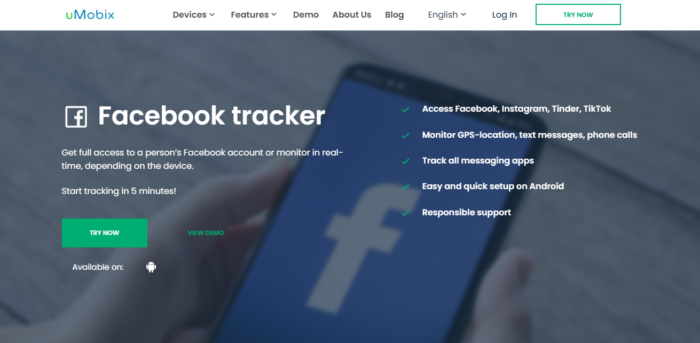TikTok rescued its struggling e-commerce operations in Indonesia.
TikTok now has majority ownership of Tokopedia and received payment for allowing them to operate TikTok Shop in Indonesia.

A year ago, in the bustling city of Jakarta, Indonesia, TikTok's e-commerce business was thriving. The popular app, known for its viral videos, had taken the world by storm and was now capitalizing on its immense influence by introducing a new feature that allowed users to buy and sell items while watching videos. This feature was first rolled out in Indonesia, a critical market for the app with 130 million users, nearly as many as it had in the United States. Since its launch in 2021, TikTok Shop had become one of the most popular online shopping destinations for Indonesians.
But then, without warning, TikTok announced that it was removing the Shop feature from its app in Indonesia. The reason? The government had recently declared that social media platforms were no longer allowed to process online payments. This sudden change forced TikTok to abruptly halt its e-commerce operations in the country.
Some officials argued that TikTok's popularity posed a threat of monopolizing the online shopping market, while others claimed that the app did not have the necessary license to operate. On the other hand, those in the industry who supported TikTok believed that the government was acting on behalf of the app's competitors in Indonesia. Although the government's decree did not explicitly mention TikTok, it was clear that no other app combined social media and e-commerce in the way that TikTok did.
Facing official scrutiny was not new for TikTok. In 2020, the Indian government had banned the app, which was once home to its largest audience, as a response to a border dispute with China. In the United States, TikTok also faced the possibility of a ban due to concerns about its influence and security. However, the situation in Indonesia was especially concerning for the app's parent company, ByteDance, as it threatened their ambitious plans to generate significant revenue through e-commerce. ByteDance hoped that TikTok would replicate the success of its sister app, Douyin, which had a live video shopping business in China that generated over $200 billion in transactions in 2022.
The new restrictions in Indonesia also had the potential to inspire other nearby countries to take similar actions, according to Jianggan Li, CEO of Momentum Works, a consultancy based in Singapore. Realizing the critical importance of the Indonesian market, TikTok executives scrambled to find a way to continue offering e-commerce services. Word spread through the local tech community that TikTok was on the lookout for a local company to partner with. And within a matter of weeks, they found a solution - acquiring a stake in Tokopedia, one of Indonesia's leading e-commerce platforms.
TikTok was determined to get the Shop feature back online by Dec. 12, which was known to be a major day for e-commerce deals in China and had gained popularity in Indonesia as well. The government had even promoted it as a day for supporting small businesses. In late October, executives from both companies met over dinner to discuss the details of the deal. TikTok made it clear that the deadline was "non-negotiable," according to sources familiar with the discussions.
In the bustling city of Jakarta, Indonesia, there was a time when TikTok's e-commerce business was flourishing. It seemed that everyone was using the app to buy and sell items while watching their favorite viral videos. Indonesia was a key market for TikTok, being the first country to introduce this feature. With a whopping 130 million users, it was almost as popular as it was in the United States. The launch of TikTok Shop in 2021 had made it a go-to destination for online shopping among Indonesians.
However, things took an unexpected turn when TikTok announced that it would be removing the Shop feature from its app in Indonesia. This was due to a government regulation that prohibited social media platforms from processing online payments. In a matter of days, TikTok's e-commerce operations came to a halt, leaving many users disappointed and confused.
The government's decision was met with mixed reactions. Some officials argued that TikTok's growing popularity could potentially monopolize the online shopping market, while others claimed that the app did not have the necessary license to operate. On the other hand, some defended TikTok, suggesting that the government was acting in favor of its competitors in Indonesia.
Interestingly, the government's directive did not explicitly mention TikTok, but it was clear that no other app combined social media and e-commerce in the same way. This was not the first time TikTok faced scrutiny from authorities. In India, the app was banned in 2020 as a result of a border dispute with China, and in the United States, it is facing a possible ban due to concerns about its influence and security.
But for TikTok, the situation in Indonesia was especially critical. The app's parent company, ByteDance, had big plans for its e-commerce business, hoping to replicate the success of its Chinese counterpart, Douyin, which had a whopping $200 billion in transaction value in 2022. The new restrictions in Indonesia could also set a precedent for other neighboring countries to take similar actions, which could be detrimental to TikTok's growth.
In a frantic effort to save its e-commerce aspirations, TikTok's executives searched for a solution. Rumors started circulating in the Indonesian tech community that the app was looking to partner with a local company. And in a matter of weeks, a deal was struck between TikTok and Tokopedia, one of Indonesia's leading e-commerce platforms. The app was determined to get the Shop feature back online by December 12th, a significant day for e-commerce deals in China, which had also gained popularity in Indonesia.
In late October, over a dinner meeting, executives from both companies discussed the terms of the deal. TikTok made it clear that the deadline was non-negotiable, according to sources familiar with the discussions. With the clock ticking, the pressure was on for TikTok and Tokopedia to make the collaboration a success.










